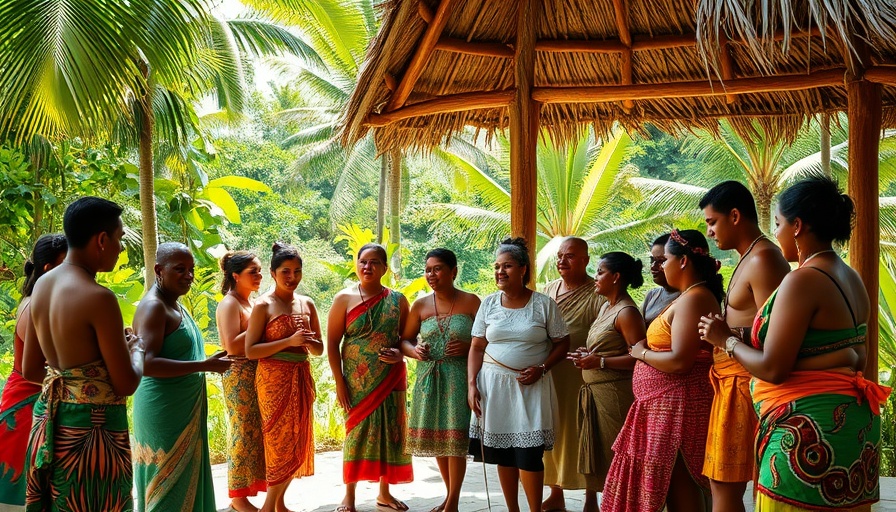
The Power of Wellness Retreats at Pacific Adventist University
The recent ELIA 7-day Wellness Retreat at Pacific Adventist University (PAU) marked a significant shift in how health and wellbeing are perceived in Papua New Guinea (PNG). It culminated in a week of transformative experiences for 34 participants, emphasizing the immediate need for comprehensive lifestyle health programs aimed at combating the growing epidemic of lifestyle diseases.
Why Lifestyle Health Programs Matter
With PNG grappling with a rise in diabetes, heart disease, and cancer, initiatives like the ELIA retreat serve as a clarion call for action. The evidence-based approach to health isn’t just beneficial—it's life-saving. Dr. Geraldine Przybylko noted, “We were designed to thrive,” and this retreat focused on fostering a wellness culture that spreads beyond the individuals attending, impacting families and communities.
Engagement in Healthy Practices
Throughout the week from June 22 to 29, participants took part in invigorating exercises including daily stretching, resistance training, and hydrotherapy, coupled with cooking classes that taught them to prepare nutritious meals using locally sourced ingredients. These practical sessions combined physical activity with the introduction of healthy eating habits, setting the stage for long-term health improvements.
Lives Transformed Through Community Support
An astounding outcome was observed as participants’ health metrics significantly improved. Fasting blood sugar levels saw a dramatic decline, with one participant’s blood glucose dropping from 23 mmol/L to 12.3 mmol/L due to simple lifestyle changes. This jump in health metrics highlights how group support in health initiatives can lead to collective success and personal revelations.
Encouraging Sustainable Health Practices
The collaborative effort extended beyond mere participant engagement; it also involved upskilling PAU dining hall staff to continue providing wholesome, plant-based meals post-retreat. Viana Raliku, the director of food services, proudly shared her own weight loss of 8 kg, illustrating how personal commitments can translate into institutional changes. Such experiences are vital for building a culture of health within educational institutions.
A Testament to Faith and Health
The intersection of faith and health played a crucial role in this program. Activities incorporated spiritual teachings, helping participants find motivation and purpose in their wellness journeys. This holistic approach resonated well with the members of the Seventh-day Adventist (SDA) community who value health as a divine principle. The program undoubtedly enriched their spiritual and physical lives, promising a healthier future.
A Call for Continued Education
The success of the wellness retreat at PAU is just the beginning. The urgent need for lifestyle health education is emphasized by Jenny Wigglesworth from Cedarvale, who shared that only 10 out of 34 participants had normal blood sugar levels before the retreat. As these initiatives gain traction, further emphasis must be placed on community health education and preventive care, especially given the alarming state of health in PNG.
Next Steps for Community Members
As we reflect on the transformative effects of this health retreat, it's clear that the SDA community has a unique opportunity to take ownership of their health and wellness. Community members are encouraged to engage in similar programs that promote lifestyle changes and preventative care.
To fully capitalize on these learnings, join local wellness programs, participate in cooking classes, and share your journey with others. Such actions will not only improve individual health but also strengthen community bonds, making health a shared mission.
Let's embrace the wholistic health call to action initiated at PAU. By prioritizing health education and wellness within our faith communities, we can pave the way for lasting changes that ripple through generations.
 Add Row
Add Row  Add
Add 




Write A Comment